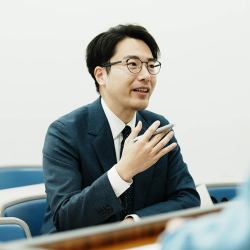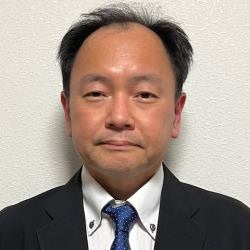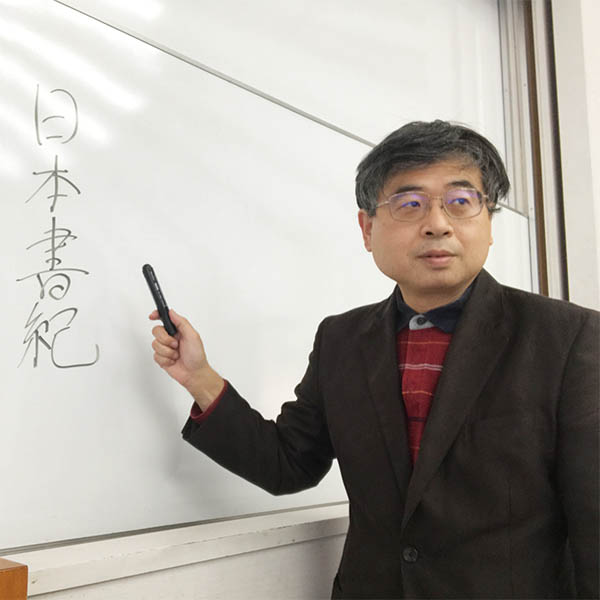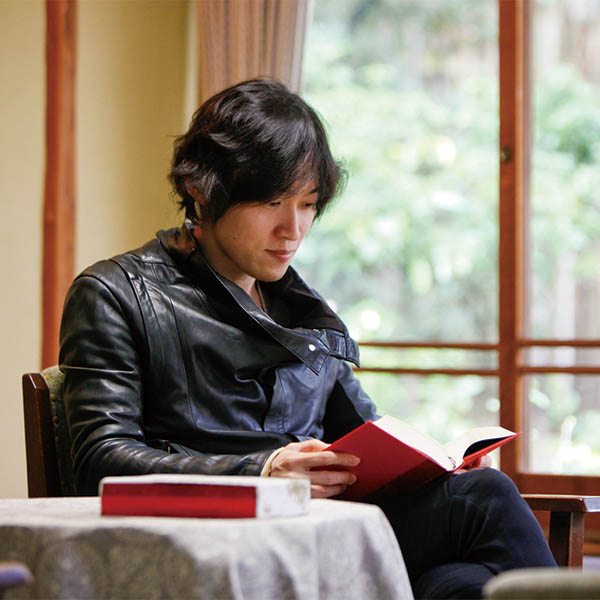
ESAKA Yukiko
- Specialization
- Japanese Heian Literature / Classical Japanese and Chinese Poetry
Students refer to numerous works of literature to analyze literary forms and study theories of classification.They further deepen their understanding by considering the ability of literature to reflect and convey to later generations the reality of past periods and societies through descriptions of characters' appearances, environs, psychology, and unconscious behavior.
For generations, regions of Tohoku have passed down the horrors of past earthquakes and tsunamis to the present day.In this lecture, students look primarily at such traditional Japanese folk tales and consider their nature, history, and contemporary significance.
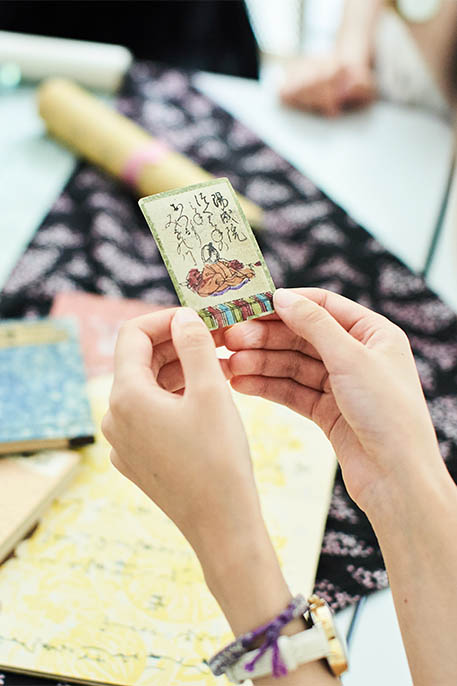
The first year focuses on acquiring the foundational skills necessary for studying at university. Students participate in small-group classes to build the essential language skills necessary for humanities studies—reading, speaking, and writing. They also gain experience analyzing topics from multiple angles—history, literature, society, international studies, and Japanese culture—nurturing a flexible and open-minded perspective.
Foreign language study is also a key focus, fostering cross-cultural understanding.
Languages Offered: English, Korean, French, Spanish, and Chinese
With guidance from faculty members, students carefully design their long-term fieldwork experience. In the second semester, they leave campus for six months of hands-on fieldwork. Through this experience, students cultivate independent thinking, practical skills, and the ability to communicate their findings effectively. The confidence and skills they gain here will be invaluable no matter where their future takes them.
As students compile their research reports from long-term fieldwork, they also gain expertise and research methodologies through courses in their respective fields. They also participate in small-group seminars where they analyze texts, present research, and engage in discussions on key themes. By exchanging ideas and engaging with diverse perspectives, students refine their thinking and deepen their understanding.
Students write a graduation thesis as the culmination of their four years of study, presenting their completed theses at the Graduation Work and Thesis Exhibition in February, just before graduation in March. This exhibition offers a valuable opportunity to receive objective feedback from both within and outside the university.
The History of and Going Beyond Modern Japanese Theater: Oriza Hirata’s Theory of Modern Theater
How has modern theater imported from the west been received in Japan?The dramatist Oriza Hirata systematized daily dialogue in Japanese society within his idea of "contemporary colloquial theater."This paper considers modern western theater from the perspective of this "dialogue" and discusses the history of modern theater in Japan and how theater can go beyond this drama style.
When Movies Give Hope: From Up on Poppy Hill—A Modern Portrayal of Aoi Sanmyaku
Studio Ghibli released the movie From Up on Poppy Hill in cinemas in July 2011.It is closely related to the novel Aoi Sanmyaku (“Blue Mountain Range”), serialized in The Asahi Shimbun in 1947.This paper considers two movies, the film-version of Aoi Sanmyaku from 1963, which is said to have reinvigorated Japan after its defeat in the Second World War, and From Up on Poppy Hill, which was released after the Great East Japan Earthquake and Tsunami. In particular, it examines how these films gave people hope.
The Melancholy of an Upright Character: Examining Ichiyo Higuchi’s Takekurabe
The Meiji-era novella Takekurabe (“Growing Up”) is controversial due to the transformation of its main character, a young girl named Midori.In particular, the reasons for her almost unrecognizable behavior at the end of the story are hotly disputed.This paper focuses on the melancholy she experiences due to other people’s attention and attempts to explain her transformation from this perspective.





